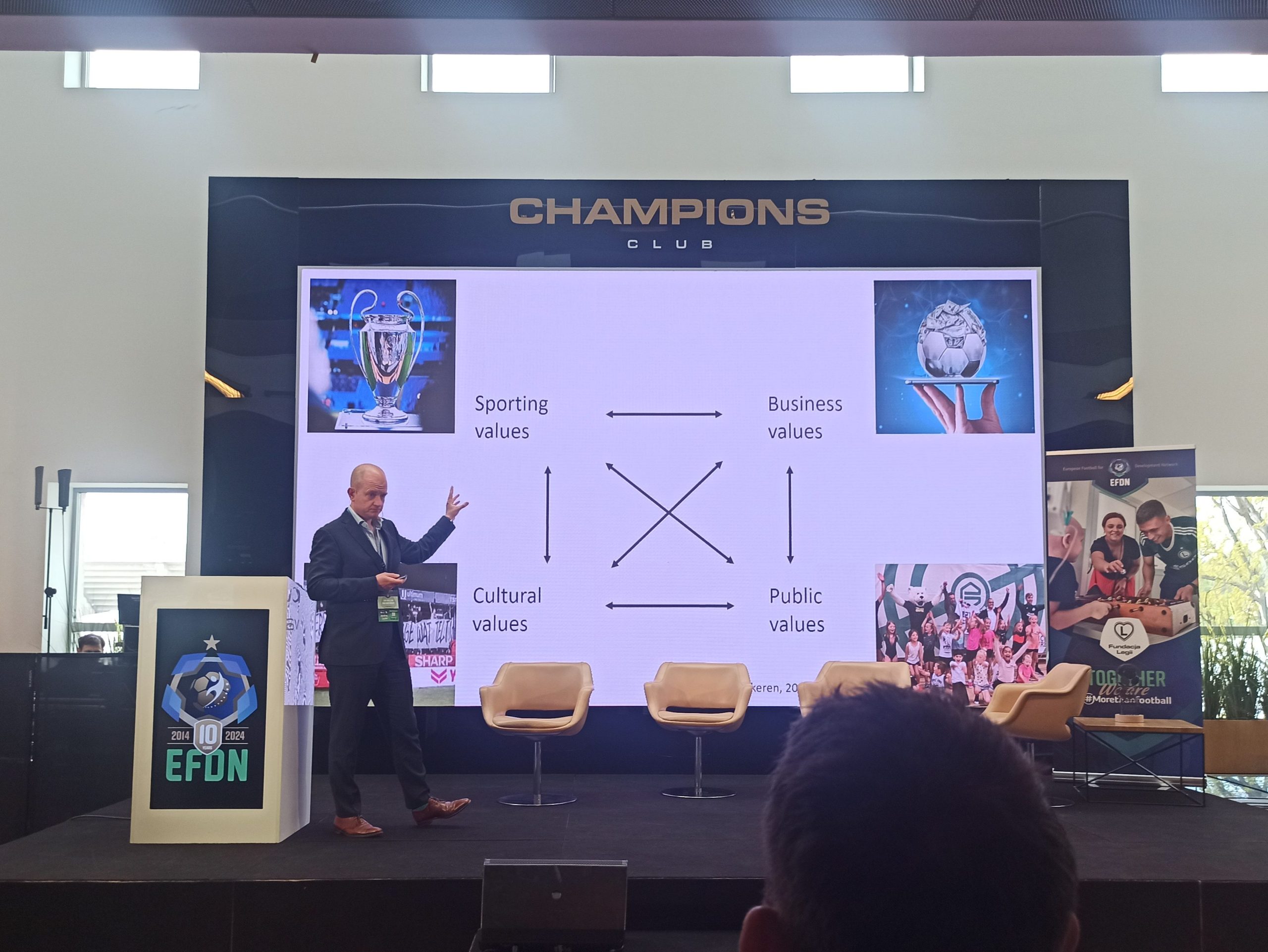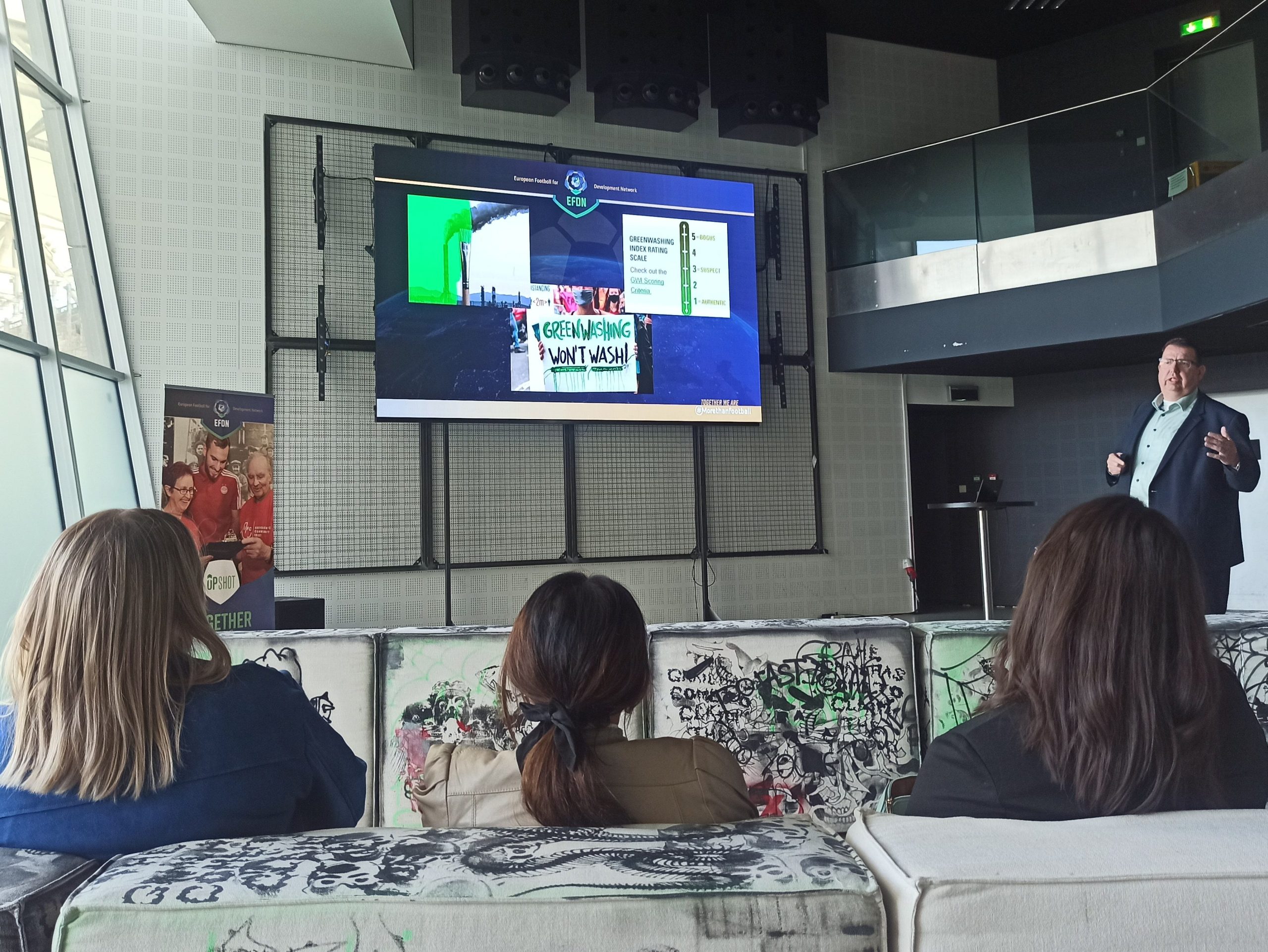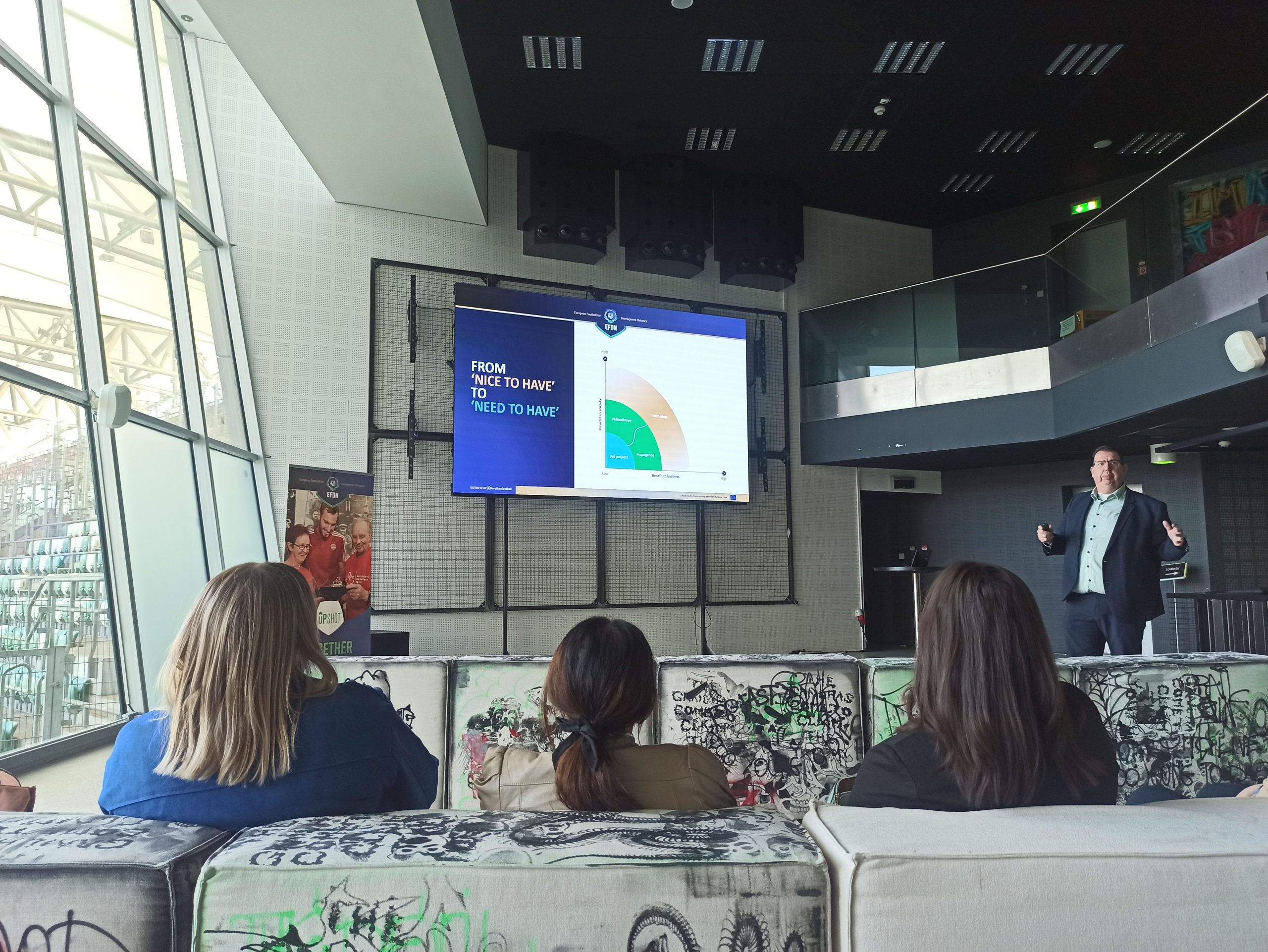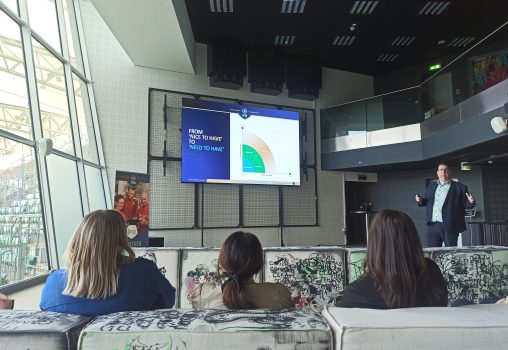Last week I had an opportunity to participate in the European Football for Development Network (EFDN) conference hosted by the Legia Foundation in Warsaw, Poland. The EFDN is an organisation with 10 years history of promoting various projects in the field of CSR or ESG in football. It has over 150 members, which are primarily European football clubs from western Europe and Nordic countries. Throughout the conference, a dozen ESG practices were presented, as the conference puts emphasis on collective learning and collaborations between the clubs.
From my viewpoint it was on the one hand an opportunity to learn about current trends in reference to ESG in football and on the second – to compare it with the way Polish football clubs define and engage in ESG. The second subject is particularly close to my heart due to regular analysis of CSR in polish football clubs, which I have been coordinating in Poland for the last six years.
The topics touched upon at the conference were vast; below, I selected a few observations.
Integrating ESG with the core of the football club
Jan-Willem from Utrecht University described an example of the Utrecht FC club, which recently decided to integrate the club’s foundation ‘activities’ within the club. In fact, during the conference, the need to ensure stronger links or even physical integration of the clubs’ foundations appeared at least a couple of times. The context was primarily impact (public value) orientated, yet oftentimes also business value focused.

More strategic and ‘picky’ approach to ESG in football
Another club in the Netherlands, FC Groningen, presented a very strategic approach to ESG, describing how theory of change led to the definition of a ESG theme that the club can focus on, which in the case of Groningen was physical inactivity in the region. I consider it an interesting case, where the club attempts to specialise in a particular societal challenge, focusing its resources to address the issue, gaining expertise and attracting partners in the process.
Club as an intermediary
An interesting example of clubs serving as intermediaries between community and energy efficiency experts was presented in the Climate Captains project. In the project, clubs start with identifying community issues related to climate. Later, they cooperate with external entities with the aim, among others, of identifying available resources to invest in energy efficient solutions for community representatives. What I enjoyed in this project is that a club has a clear-cut role in the project, not trying to singularly address it, if it is beyond its expertise.
Beyond planting trees
Finally, I was surprised at how 'impact-focused’ clubs’ initiatives are to reduce their carbon footprint. During the many presentations, emphasis has been placed on actions that are aimed at particularly ‘problematic’ topics, starting from the largest contributors to carbon footprint. Clubs are aware of overstatements and cautious of greenwashing, unwilling to be accused of it. It stands in contradiction to what becomes a common way to commit to environment protection among Polish clubs, which are currently relishing the idea of planting trees. More deliberate approach to environmental sustainability has been recently supported by UEFA via their football-specific carbon footprint calculator.

The context of the Polish football clubs
In terms of ESG in comparison to their European counterparts most Polish football clubs are lagging far behind. However, there are few strong suits for Polish football clubs.
As an example, many football clubs from Ekstraklasa partner with public authorities in order to ensure that travelling to stadiums is free of charge for ticket holders and that there are options available to get back from stadiums by public means of transport.
Despite the couple of good practices, on a general level Polish clubs definitely lack expertise, still oftentimes merging CSR with philanthropy. Given the already applicable requirements on football societal responsibility introduced by the Polish Football Association and CSRD directive the clubs need to accelerate the process of implementing CSR / ESG or will not be able to speak the same language other business speaks on the matter. This puts a lot of pressure on recently established CSR managers that had to be selected within the clubs, to manage various conflicting interests around the clubs.
If you are interested in CSR in Polish football, you might find my article on the implementation of UEFA requirements in Polish football to be of interest (LINK).

